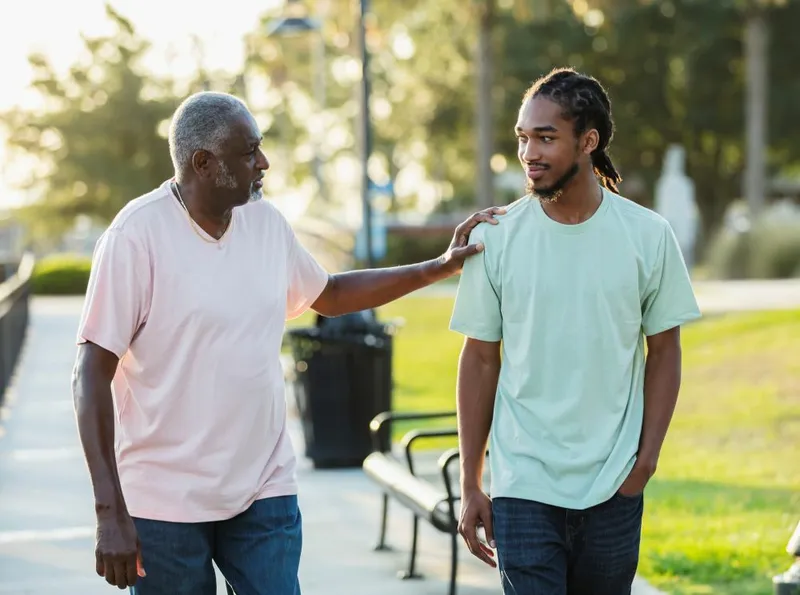
Guilt

What is guilt?
People typically feel guilt when they feel like something bad that happened is their fault. At some point in life, you’ve probably made mistakes or done something you regret. Guilt is that feeling you experience in the pit of your stomach that makes you feel worried you hurt someone else, or that makes you self-conscious and self-critical. This is especially true if you’ve never come clean about your mess-up and instead fixate on what you could have done differently.
Guilt is different from shame: Guilt is about the action you performed (“I did something bad”). In contrast, shame is seen as being about you (“I am bad”). In this sense, guilt is more specific and is related to a singular event or behavior. Shame, on the other hand, is really a negative commentary about how a person views themselves or thinks others view them.
While guilt definitely doesn’t feel good and brings with it a sense of regret, it also opens the door to reflection and personal growth. Noticing when guilt is present could be a sign to look closer at a situation or specific behaviors, and could guide you to repair social relationships. It’s a very powerful emotion that indicates empathy and can motivate you to improve your actions and behaviors in the future.
That being said, many people feel guilty for reasons outside of their control or feel guilty to an unhealthy extent. For example, a busy parent may feel guilty when they pick up takeout for dinner because they don’t have time to cook a meal, feeling that a good parent would be able to do it all. This is often called a “guilt complex.” When someone has a guilt complex, they may feel constant guilt about the past, present and future and blame themselves for things that they imagine they did wrong or will do wrong.
It’s common for people with a guilt complex to view their actions as having a bigger effect on a situation than they actually do, and many people think that they have done something wrong even though they haven’t or may overestimate their role in the situation. This misalignment with reality can lead to shame, anxiety and frequent worry.
Feeling excessive guilt can also lead to physical symptoms that include muscle aches, fatigue, insomnia, muscle tension, stomach issues, obsessive or intrusive thoughts, and intense feelings of panic and worry. You may be preoccupied with a situation or past mistakes or experience regret.
For all of these reasons and more, it’s so important to identify the guilt that helps you and the guilt that hurts you so it can be addressed before it takes a larger, unnecessary toll on your physical and mental health.
What's causing my feelings of guilt?
Your cultural background, childhood upbringing, and brain chemistry have a lot to do with where your guilt may come from. For example, people are conditioned to feel guilty through their childhood experiences by being taught that certain behaviors or mistakes are “bad.”
The desire to avoid guilt teaches kids how to interact in their lives, but it can also prevent people from focusing too much on others and not enough on themselves. Also, people who deal with a lot of anxiety are more likely to have lingering feelings of guilt.
As mentioned previously, guilt is tied to empathy, and feeling guilt tells you to look beyond yourself and consider how your behavior is impacting others. Because of this, guilt is often experienced when people feel like they have compromised their morals or values in some way or gone against societal expectations or pressures. We often feel guilty if our personal values conflict with our choices, if we have thoughts or desires we don’t think we should, or if we take care of our own needs when we think we should be caring for others.
It may be that you’re built to feel more guilty than someone else because of these factors, or it may be that sometimes you simply feel guilt when it’s not necessary. Whatever it may be, it doesn’t mean you have to live with overwhelming feelings, and there are ways to deal with and overcome them.
How should I deal with guilt?
Guilt can feel like a challenging emotion to address, but it’s still possible to deal with guilt even if the feelings have lingered for a long time. There are a few basic steps you can take to tackle guilt, starting with simply acknowledging that it exists:
- Ask yourself if you can clearly point to an action you took that led to a negative outcome. Consider asking: what happened to cause this feeling, and what aspect do I feel guilty about? If it’s difficult to figure out on your own, consider talking to the people you feel may be affected to get their perspective.
- Identify what kind of guilt you’re feeling. If your guilt is a result of something you may have done incorrectly, do your best to use this as an opportunity for growth and betterment. If it’s not, ask yourself these questions–if the answer is yes to any of them, you may need to tackle some unhealthy guilt:
- Did a negative outcome happen, or am I feeling guilty because of thoughts that I’ve had (and not actions I took)?
- Was this situation and outcome in my control? Did I really do something wrong, or am I just perceiving that I did?
- Is something causing me ongoing stress, such that I’m feeling burnt out and less productive?
- Do I feel conflicted in that I feel grateful about my experience and life and sad because others may have less than me or more hardships than me?
- Do I feel like I’m not doing enough to reflect my values as an individual or as part of a group?
- Do I feel bad when I prioritize my time and self-care over others?
- Reflect on what may contribute to the kind(s) of guilt you’re feeling. Your culture, childhood experiences, religion, or simply your personality could make you more likely to have certain types of unhealthy guilt. Recognizing this when you feel unhealthy guilt can be freeing and provide relief. It is OK to have needs—you can’t be all things to everyone at one time.
- Reflect on what you can and cannot control. Ask yourself if it is or is not in your control to fix the situation you feel guilty about, and if it is not, consider what aspect of the situation (your feelings, your relationships) might be. Consider making amends, where possible, or simply reminding yourself of all of the positive things you do for others, and seeing this written down, may help you feel less guilty about the one thing on your mind that you can’t change.
- Eliminate negative self-talk. Guilt can lead you to feel shame and negatively about yourself as a person, friend, or partner. Try to remember behaviors are not you, and practice self-compassion where you can. Everybody makes mistakes—they are, in fact, part of being human.
If you need to, you can always talk to a loved one or even a therapist to help explore your guilt, its causes and how to better cope.
Things to try
-
Write about how you’re feeling—not only what makes you happy, but also what triggers stress or pain. Experiencing a range of emotions helps regulate stress response, which can mean a healthier immune system. Journaling can also help you take action—you can identify things you want to do more or less of, identify situations you want to change or get help with, and figure out ways to deal with stress in the moment if you know what situations to look out for. While it is tempting to just use your computer, it can be more beneficial to go back to the old pen and paper. The good news is, you only need to journal a few times a week, for 10-20 minutes to get benefit.Explore More
-
Try talking about it
It might be that talking about what you're going through is the last thing you feel like doing. Or, it might be that you don't feel like talking to your loved ones about it. Ironically, this is usually a sign that getting something off your chest may be essential to healing. Consider asking a therapist or someone you trust to be a sounding board for you. You only need to start with one person.Explore More -
Ask for specific help
Though making a specific ask when you're going through difficult times might feel strange, well-intentioned friends who say “Let me know if I can do anything” will be glad to have a clear idea of how to be helpful. If you aren’t sure where to start, consider: Practical support: errands, cooking, babysitting, etc.; Social/well-being activities: taking a walk, going to coffee or lunch, etc.; Emotional support: spending time together—to talk, or just spend time together.Explore More
What can I do now?
- WebsiteSeize the Awkward
-
Online interactive tool(s)Take a Mental Health Test | Mental Health America
-
WebsiteWondermind


